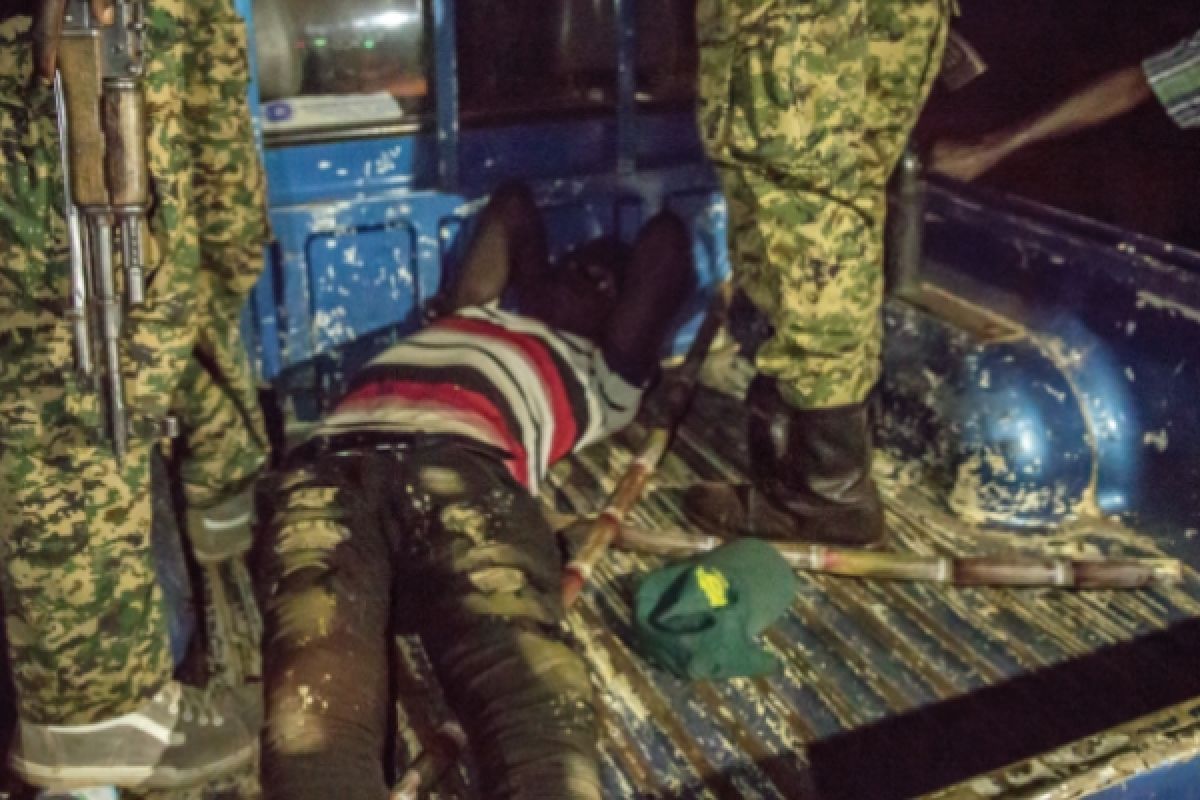Uganda's lethal lockdown exposed

Uganda’s lethal response to Covid-19 has led to an epidemic of violence, poverty and hunger, reports Zachary Ochieng.
As the world continues to battle the coronavirus pandemic, human rights watchdogs have criticized the Ugandan security forces for using excess force in imposing Covid-19 containment measures.
In its efforts to mitigate the spread of the pandemic, the government imposed a raft of restrictive measures.
This included a ban on transport and non-food markets, which millions of poor Ugandans rely on to make ends meet. All bars were also closed.
Subsequent measures included a nighttime curfew, banning the use of all privately owned vehicles, and closing shopping malls and non-food stores for 14 days.
The government announced that the police, the army and a community-policing paramilitary group called the Local Defense Unit, coordinated by the Ugandan army, would conduct patrols to help enforce the directive.
But in the process of enforcing these restrictions, security forces used excessive force, including beatings, shootings and arbitrarily detaining people across the country.
According to Human Rights Watch, police shot two construction workers riding on a motorcycle on March 26 in Mukono, on the outskirts of Kampala.
On March 28, six police officers shot at a group of people in Bududa, in the Eastern region, ostensibly to enforce the ban on public gatherings.
Shockingly, 12 people had been killed by security forces by July, when only one death from coronavirus had been reported.
Such security excesses are not new in Uganda. Successive regimes have used the police and military power to violently oppress political opponents, quell any riots or enforce certain regulations.
On the flip side, Uganda’s military was instrumental in the successful treatment of Covid-19 patients at the country’s national referral hospital, having set up a 100-bed capacity mobile hospital, complete with ICU facilities.
Even so, cases of police brutality in African countries that imposed lockdowns are on the rise. Nigeria, South Africa, Uganda and Kenya have been cited as some of the countries whose security apparatus used excessive force to impose the Covid-19 containment measures.
But it’s the lockdown’s toll on Uganda’s economy and health service that may really drive up the death count.
Uganda’s finance minister, Matia Kasaija, has estimated that the country’s harsh lockdown will drive some 780,000 people into poverty. While an August report by the Development Initiatives found that one in four of Uganda’s urban poor had lost ‘100 per cent of their daily income during and after the pandemic.’
The report also noted that Uganda has registered an increase in ‘preventable deaths’ during childbirth, as well as increased deaths due to malaria and other diseases due to the disruption caused by lockdown.
It concluded: ‘The socioeconomic consequences of [containing] Covid-19 currently outweigh the positive health impact of limiting its spread.’
Uganda’s economy was projected to grow by 5.3 per cent in 2020 before the lockdown, but predicted growth has since being revised down to 3.5 per cent, by Deloitte, as disruptions to global trade and job losses at home take their economic toll.
Douglas Opio, the CEO of the Federation of Uganda Employers, said that more than 5,000 companies had already gone to the wall because of the lockdown, with ‘over 400,000 workers’ affected by conservative estimates.
He added: ‘We are not sure how many more will lose their jobs’.
Denis Jjuuko, a communications consultant and Rotarian, from Kampala, said: ‘Job losses have been many, and incomes have been halved for those still lucky to have jobs.’ He added: ‘There has also been a surge in teenage pregnancies and forced marriages.’



